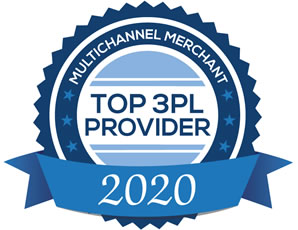
There’s a new buzz in supply chain and it’s the buzz of blockchain. Some experts say that blockchain will be the most important invention since the internet.
What is blockchain?
A blockchain is a tamper-resistant digital database system. The continuously growing list connects records together in an encrypted and secure manner using distributed ledger technology (DLT) to maintain a permanent public record. As countless news stories have shown us, most networks are not impervious to hacking attempts, even the credit reporting bureau Equifax.
How does blockchain work?
Indelible transparency.
The “blocks” contain timestamp and transaction information and are essentially tamper-proof. Each new record has a reference to the previous record and is committed in chronological order.
The “chain” is a sort of decentralized database network that allows people or companies to interact with each other with security and transparency. The entire community can see the data, and the chain of transactions cannot be broken. Transactions cannot be changed or deleted once they are recorded in blockchain and the original information stays put, leaving a permanent and public information trail, or chain, of transactions.
@Investopedia gives several analogies that help visualize the technology.
How will blockchain affect supply chain?
These days, the most common example of blockchain technology is cryptocurrency, such as Bitcoin, but watch for this term to appear more frequently in manufacturing and supply chain in the next few years. Blockchain technology can be used to record any digital event and nearly eliminates the need for human interaction, so it may be used to securely link companies within a supply chain and streamline transactions, thereby reducing costs.
Some refer to blockchains as “networks of trust” will allow supply chain entities to interact with greater security. Due to the nature of the encryption, trust is assured. The public nature of the blockchain means that there are no permissions-based viewing of information. Everyone is in the loop.
 Using blockchain could make it easier to track parts and shipments, facilitate quick transactions, deal with distributors, arrange contracts, by eliminating some of the friction. Imagine never receiving an incorrect PO and always being able to find a part for a machine with ease. No more disputing invoices; no more wondering when a shipment will arrive.
Using blockchain could make it easier to track parts and shipments, facilitate quick transactions, deal with distributors, arrange contracts, by eliminating some of the friction. Imagine never receiving an incorrect PO and always being able to find a part for a machine with ease. No more disputing invoices; no more wondering when a shipment will arrive.
As a digital common ground, blockchain can simplify cross-border transactions. Plus, blockchain can handle just about any number of participants, regardless of type. Thus, any size group of vendors, from shippers to packaging designs, can be linked easily and securely.
@LogisticsBureau offers a good explanation of blockchain applications in business.
Business Tips and Industry News
For more news and tips on all things business and e-commerce, visit our e-zine. Our e-zine is also available as an rss feed.



